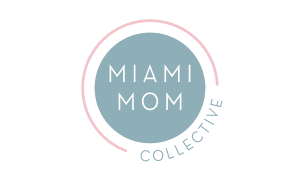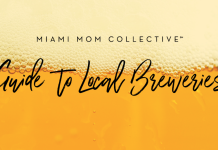 As a new mama with a teething little one, I know the time for solids is near— that means I have a few weeks to learn how to guide my infant with their journey to solids. Here’s the thing, helping our little ones discover food can be exciting but it’s also the perfect opportunity to guide them to health. Health is found far beyond food and that is their relationship with food.
As a new mama with a teething little one, I know the time for solids is near— that means I have a few weeks to learn how to guide my infant with their journey to solids. Here’s the thing, helping our little ones discover food can be exciting but it’s also the perfect opportunity to guide them to health. Health is found far beyond food and that is their relationship with food.
After a few weeks of research here are my biggest takeaways for creating healthy food habits:
Introduce solids only when they’re ready.
This is for expecting/new mamas: There are many ways to recognize when your baby is ready for solids. From head control to teething. There are also certain cues like interest in food and first teeth. This will help with overall development and mind-to-body connection when it’s time to introduce food.
Let their instincts lead.
Good news! We have a head start already because babies are born intuitive eaters. While so many of us are trying to relearn this instinct as adults, babies are born knowing exactly how much they want/don’t want. Paying attention to their pattern of eating is key in letting them lead.
Instead of having to reteach those skills later on, help your baby maintain trust in their body by letting them recognize when they are full or hungry. Then respond accordingly— ex. observe what foods they like, don’t like, and what foods fill them up quickly vs. which ones don’t. How they eat certain foods, how they react to certain foods, etc. The point is to lean into their instincts by paying attention to the baby’s cues and stop feeding them when they show signs of fullness/satisfaction instead of forcing them to finish the plate set before them.

Don’t label food.
Many of us have culturally learned to label food “good” or “bad”— this labeling has created a toxic relationship with food for many. Food has no moral value, and we want our littles to know that every food can be allowed in moderation. Labeling certain foods such as desserts ‘bad’ or ‘off limits’ can create a ‘forbidden fruit’ complex, leading to serious food issues like hiding it or even eating it in secret. Granted, these are all cases that can be extreme in nature. Instead of labeling, let’s try reframing how we speak about food around our kids, for example, “eating this salmon supports our brains and makes us smart,” and “these cupcakes are such a fun treat.”
When it comes to creating healthy food habits, don’t underestimate the importance of wording. Begin by ditching words like ‘good’, ‘bad’, ’crap’, or ‘junk food’. Instead, use words like ‘sometimes’ or ‘every day’ when referring to food.

Eat as a family as much as possible.
Studies have shown the importance of connecting with our children over a meal. This means not eating alone or in front of a screen. When we eat while using our phones, watching tv, or any form of screen time, we condition our brains to get hungry every time we turn on the screen. Not to mention distracted eating leads to mindless eating/overeating.
Eating with our children will not only improve the quality of what they eat but it’s proven to better their academic success. Children who eat with their families tend to have fewer weight management issues and are less likely to have eating disorders or deal with depression. I also read that children who partake in making meals with family build stronger emotional connections with family while building appreciation for the food they eat.
All this to say that we have a wonderful opportunity when it comes to helping our children build healthy relationships with food. Eating disorders don’t have to look like what we have always seen, they look very different today. Today, many people have eating disorders and they don’t even know it! Whether it’s overindulging for the sake of experiencing endorphin rushes or restricting due to body dysmorphia. If we help our children grow healthy relationships with their food, we’re looking at lifelong effects. Health is wealth.
Sources:
Molina Healthcare
European children: prospective findings from the IDEFICS study
Arvidsson et al. BMC Public Health 2017
Jastreboff et al., 2018; Lytle et al., 2011; Miller, Miller, & Clark, 2018
















